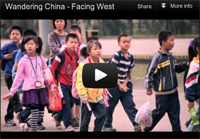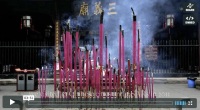Do we really need more polarity?
Australia’s great and powerful friends dilemma in focus: The keeping of strategic peace has allowed Australia like many other middle powers, to prosper since the end of WW2.
Professor Hugh White in an earlier paper indicated two key adjustments Australia needed to make to keep this peace (see: The White Quarterly Essay: ‘Power shift: Australia’s future between Washington and Beijing’). First, he established that Australia needed to reconcile that its long-term alliance with the US also witnesses Pax Americana in the Pacific coming to an end. Second, he reasoned that rising China’s challenge to American pre-eminence was ‘no longer a future possibility but a current reality’. This new reality he argued, required Australia to ‘accommodate’ rising Chinese power.
That was well and fine for the past decade. China had been filling in the U.S. vacuum in the region while American attention and its war machine centred in the Middle East. Just when the Asia-Pacific countries were getting used to this new dynamic, the US proclaims its return to the region, guns-blazing and amplifying domestic China-bashing to the international community at the APEC school-yard meeting.
The challenge here for Australia is a strategic conundrum. Does it take White’s prescription to accommodate China, and continuing reaping the economic benefits? Or does it follow the Obama Doctrine in containing China? Perhaps the question wouldn’t be so hard to answer if China wasn’t inching back to great power status at this time.
So here it is, Australia facing a new set of challenges in balancing the geo-political intricacies of the confident Chinese kid on the block looking for parity with the Beijing Consensus. At the other end of the ring we have the American cowboy back to reclaim its turf. How does Australia then avoid the pitfalls of both unnecessary confrontation or conceded appeasement?
– – –
Contain China?
The Obama Doctrine is dangerous
by Hugh White for the Wall Street Journal
Source – Straits Times, published November 27, 2011
SINCE 2009, China’s challenge to American primacy in Asia has become too stark to ignore. Last week President Barack Obama gave his response. On his Asian journey, he enunciated what truly deserves to be called the Obama Doctrine. It is perfectly clear. The United States will resist China’s challenge to its primacy in Asia, using all the instruments of its power to strengthen and perpetuate the preeminent leadership it has exercised in the region for decades.
Mr Obama also sketched plans to implement this doctrine by reorganising Asia under new US-led regional structures which exclude China. His Trans-Pacific Partnership creates a new economic framework for the Asia-Pacific without China, while an expanded defence presence in Australia signals his aim to build armed strength in Asia and draw friends and allies into a larger and tighter strategic coalition against China’s growing military weight.
Of course, Mr Obama hopes that the resolve he has shown will persuade China to drop its challenge and accept US leadership once more. But his doctrine clearly implies that if China cannot be persuaded, it will be compelled. This is very ambitious. Indeed it is America’s most ambitious new strategic doctrine since Truman committed America to contain the Soviet Union. Read the rest of this entry »
Filed under: APEC, Australia, Beijing Consensus, Charm Offensive, Chinese Model, Communications, Economics, Influence, International Relations, Mapping Feelings, Politics, Public Diplomacy, Soft Power, Strategy, Territorial Disputes, The Age, The Chinese Identity, The construction of Chinese and Non-Chinese identities, Trade, U.S.













The Sharing Circle